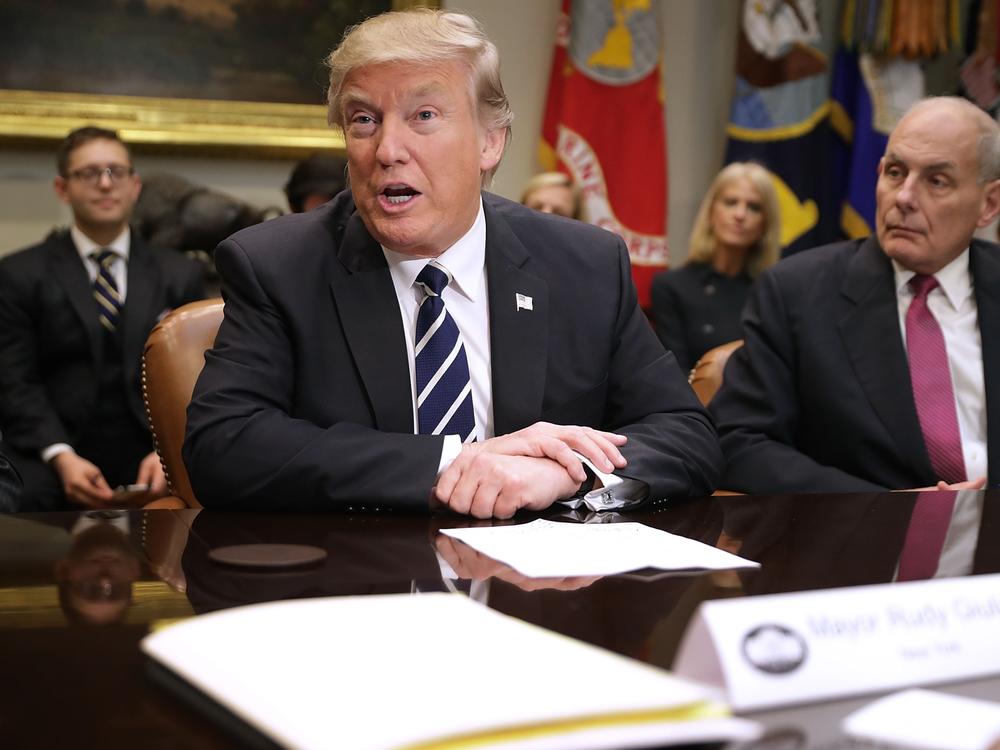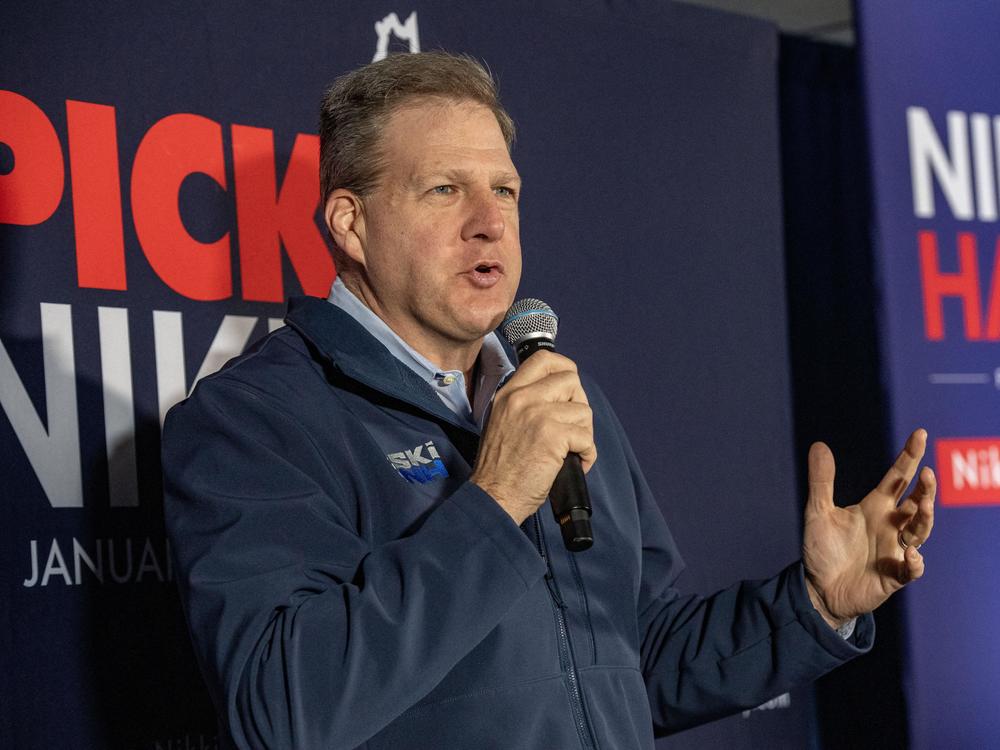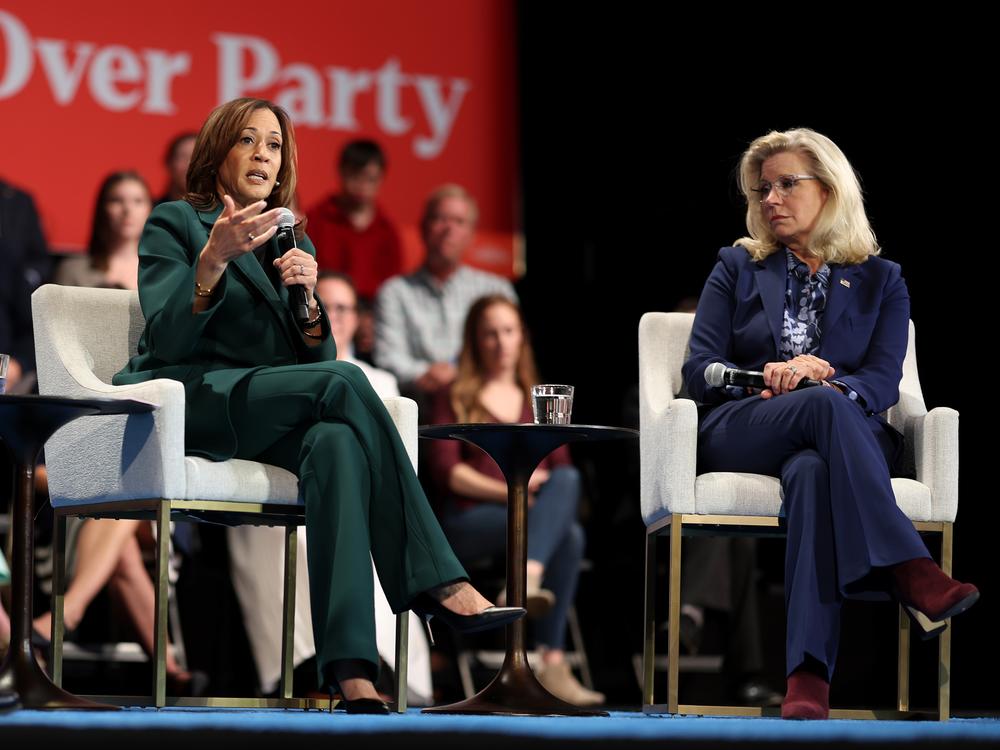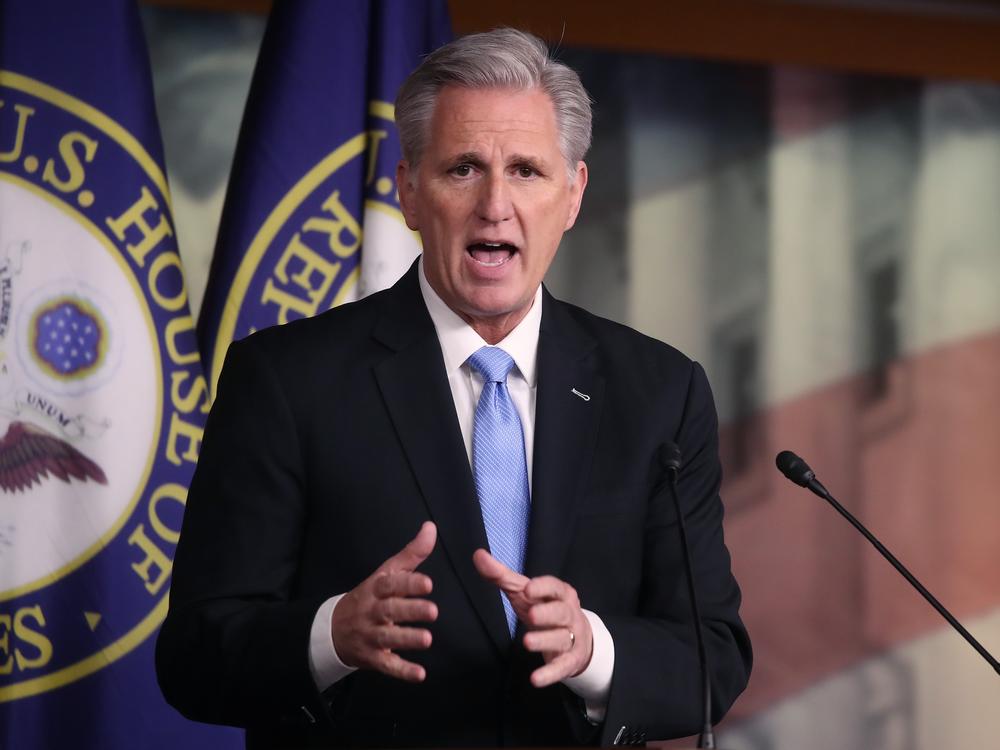Section Branding
Header Content
The GOP’s ‘survival instinct’ acts as an ally for Trump on Election Day and beyond
Primary Content
Former President Donald Trump’s campaign for reinstatement has taken some unusual flak in recent days. One of his former chiefs of staff, retired Marine Gen. John Kelly, said the man he once served in the Oval Office fit the definition of a fascist, adding Trump spoke admiringly of the Nazi generals who had obeyed orders from the Nazi dictator Adolph Hitler.
Any such description from a credible source would have been fatal for many a presidential campaign in the past. The same could be said of testimony from others that Trump in office had little respect for the Constitution or regard for the rule of law.
These attacks follow upon a highly public salvo from the uber-Republican Cheney family: former Vice President Dick Cheney and his daughter Liz, who was co-chair of the House Select Committee to Investigate the Jan. 6 attack on the U.S. Capitol. Both Cheneys had withheld their support for Trump during the primary season earlier this year, but this fall came out to endorse Harris.
They also extend the denunciations heard from a category of anti-Trump conservatives in the media known as “never Trumpers.” The group has included such illustrious figures on the right as William Kristol and George Will. Online publications such as “The Bulwark” have been sounding alarms from the right about Trump’s autocratic tendencies for nearly a decade.
In recent days, Trump himself has garnished the mix with salacious soliloquies on golf great Arnold Palmer’s anatomy and labels for Democratic Vice President Harris that use a four-letter expletive for excrement. He says her time in office has seen America become “the garbage can of the world.”
All this follows a months-long litany of statements and outbursts from Trump that indicated sympathy for Russian President Vladimir Putin’s invasion of Ukraine and affinity for autocratic figures elsewhere in global politics such as Hungarian strongman Viktor Orban.
Loading...
Yet as Nov. 5 nears, none of the stories that might have torpedoed another politician’s prospects has had that kind of effect, or even made a detectable difference in the polls or the tenor of Trump’s campaign.
All that stands as evidence that Trump’s base of voters has largely tuned out negative stories about him, which is easily done by watching only Trump-friendly cable news, websites or social media. For those who are still exposed, such stories can be dismissed as “fake news,” a phrase Trump adopted in 2016 that has since proven popular among autocratic politicians around the world.
Beyond the hardcore base, the politics of addition
But Trump’s seemingly unfazed pursuit of this style also demonstrates something else about our present political moment. Trump has his fanatical base, to be sure, but he has more than that. If he did not have more, he would not have won in 2016 or attracted in 2020 the most votes ever cast for an incumbent president, even though he lost that contest.
Trump’s most loyal fans are often described as being ready to “crawl over broken glass” to vote for him, and these legions of such enthusiasts surely exist. But to win he needs more. All the polling shows the race too close to call in the national popular vote and in at least seven swing states.
So Trump needs voters who may have misgivings about him or some of his behavior but who have deep loyalty to the Republican Party or deep aversion to the Democrats.
Most notably, he needs mainstream Republicans who may well have preferred another nominee in 2016 or 2024 but who will abide another term for Trump rather than risk having a Democrat in the White House for the next four years.
This week, the popular Republican governor of New Hampshire, Chris Sununu, brushed off the Hitler remarks without questioning their authenticity. Sununu, who in the past has called Trump “crazy,” was asked on CNN if the Hitler talk prompted a reconsideration of the governor’s endorsement.
“No,” Sununu said. “We’ve heard a lot of extreme things from Donald Trump. With a guy like that it’s kind of baked into the vote.”
Days earlier, on ABC News, Sununu had dismissed the outrage over Trump threatening to use the military against the “enemy within” in the U.S. He called such reactions “hyperbole.”
And, Sununu said, he would be voting for Trump because he could not face four more years of a Democratic agenda.
Some defections, but do they prove the rule?
It must be said that in recent days there have been Republican officials who have spoken out against their party’s fealty to Trump.
After the Hitler remarks, for example, the most senior Republican in the Wisconsin state Senate announced he would not vote for Trump. In the same week, Shawn Reilly, the independent mayor of that state’s largest Republican city, said he would be voting for Harris.
Lifelong Republican David Holt, the mayor of Oklahoma City, wrote in a Philadelphia newspaper this week that he could not vote for Trump. Holt wrote that prior to 2016 he “took for granted that both [parties’] leading candidates respected the rule of law and deeply understood the concept that no president is above the law.”
The Harris campaign has compiled lists of hundreds of Republicans in public positions who have endorsed the Democrat. But as a rule, notable Republicans with recognizable names have stayed in the fold. The scenario first seen when Trump emerged from the candidate pack in 2015 is replayed again and again.
It goes like this: Trump says something headline-grabbing about Muslims or immigrants or the POW ordeal of Sen. John McCain. The statement prompts intraparty denunciations. But after a few days or weeks, Trump is still on top, unrepentant, unbent and unbowed — and so dominant in the media coverage as to marginalize his opposition.
After the infamous “Access Hollywood” tape aired in October 2016, such prominent Republicans as former House Speaker Paul Ryan declined to campaign with him. It did not seem to matter, even in Ryan’s home state of Wisconsin.
The controversies have erupted, reached a moment of apparent crisis and subsided. And the hardcore Trump support has often seemed to grow all the harder.
Respecting and obeying that hardcore has generally been the safe position for Republicans in statewide office or seats in Congress. They may not need to be front-line Trump defenders, but they cannot assume they will escape retribution if they openly support an opponent — especially a Democrat.
After the attack on the Capitol in 2021, Speaker of the House Kevin McCarthy said Trump bore responsibility for the riot. Senate Republican leader Mitch McConnell said Trump “summoned the mob and incited the mob.” Yet, within days, both Republicans were backing down. McCarthy was going hat in hand to Mar-a-Lago for a photo opportunity, and McConnell was unwilling to support Trump’s impeachment for his role in the Jan. 6 events.
It was apparent in each of these situations that whatever reaction might appear in some newspapers or on certain TV channels, the popular underpinnings of the Trump phenomenon remained solid. The soundings taken by Republican leaders confirmed this and guided their actions thereafter.
This has proven true even during the years after Trump was out of office and his return to power far from presumed. Even then, desertion to support a rival such as Florida Gov. Ron DeSantis in the primaries has cost former Trump allies their momentum, at a minimum, and cost some their party support.
The minority mindset and survival instinct
Is all this new? Not really. To some degree, the endgame in any presidential cycle consists of the two parties telling their loyalists to turn out and cast one for the team, largely to keep the other side from winning. In some cycles, that’s an easier sell than others. Democrats in particular have been resistant to the idea of turning out just because it was Election Day and voting “D” because they were supposed to.
It has long been said that in choosing their presidential candidates: Democrats want to fall in love while Republicans want to fall in line. Once a GOP has a front-runner, most Republicans recognize the power of pulling together to put that candidate over the top.
Republicans, at least in recent generations, have been more inclined to vote and to stick with the party when they do. That expresses loyalty, to be sure, but it also comes from what might be called a survival instinct. Republicans felt like the minority party for roughly half a century after Franklin Roosevelt swept into office and installed the New Deal in an era of Democratic dominance in other elections as well.
Republicans even felt like the minority party when their post-World War II candidates started winning the White House and winning second terms with bigger margins than their first. President Dwight Eisenhower did that, and so did successors Richard Nixon, Ronald Reagan and George W. Bush.
There have been plenty of voters in both parties who had to swallow hard before pulling the lever for their party’s man — or woman — in the past. References to holding one’s nose in the polling booth led some to refer to the “clothespin vote,” a regular feature of two-party politics where only the two major party nominees have any chance of being elected.
In the late 1990s, Republicans and not a few other observers were amazed that President Bill Clinton maintained his high voter approval ratings even in the depths of his impeachment over an affair with a White House intern. Even after the most damning evidence had been presented in public, Clinton’s approval rating in the Gallup Poll stayed above 60%. In December 1998, the month he was impeached, Clinton’s approval hit 73%.
Still, Trump has taken this dynamic to unprecedented levels. His rise to the presidency was not built on previous political experience or public service but on a media presence in a “reality show” based on his tough businessman persona. He has made a specialty of maintaining a connection with an audience through showmanship and media dominance that other candidates cannot match.
And given its unprecedented origins and sustainability, that connection seems all but certain to live on — whatever happens on Nov. 5.





